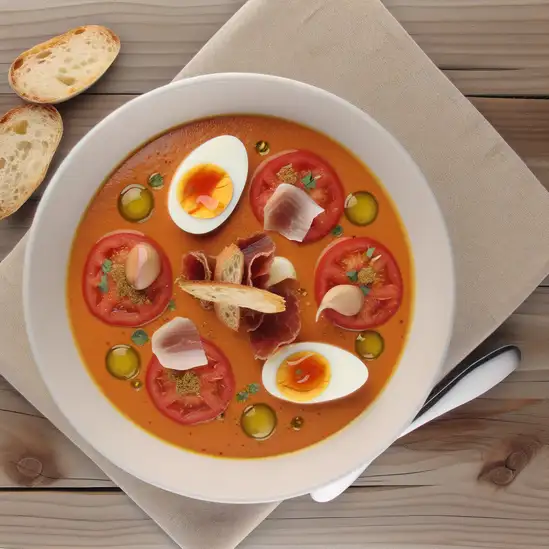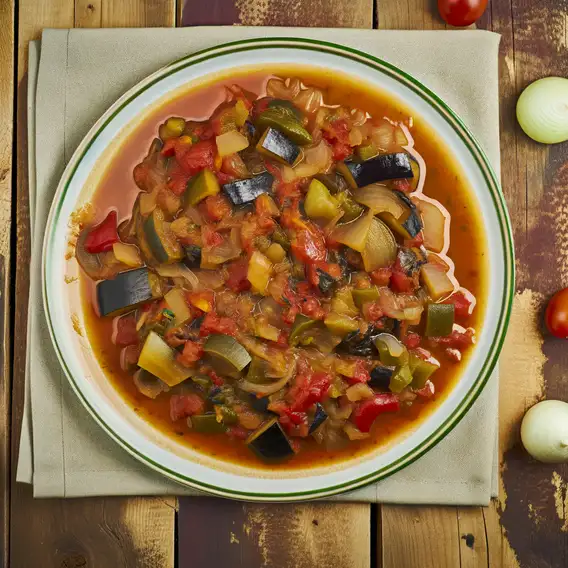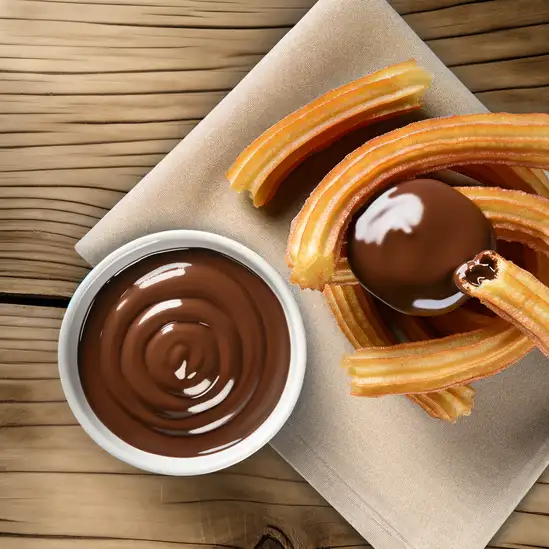



If you wander into Úbeda,you’ll immediately feel like you’ve stepped into a living painting. The city’s golden sandstone buildings glow warmly under the Andalusian sun,casting long,soft shadows across cobblestone streets that invite slow,meandering strolls. There’s a quiet elegance here,a kind of timeless calm that wraps around you like a familiar shawl. You’ll hear the gentle murmur of locals chatting in cozy plazas,the clink of glasses from a nearby tapas bar,and the occasional distant strum of a guitar,all blending into a soothing soundtrack of everyday life. Úbeda’s charm lies in its Renaissance soul—every corner tells a story,from the intricate facades of palaces to the delicate carvings on ancient churches. The scent of fresh bread and roasting coffee drifts from small bakeries,mingling with the faint aroma of orange blossoms carried on the breeze. Sitting down at a sunlit terrace,you can savor the rich flavors of local olive oil drizzled over crusty bread or a plate of jamón that melts in your mouth,grounding you in the region’s deep culinary traditions. What makes Úbeda truly special is its blend of history and warmth. It’s not just about the stunning architecture or the art; it’s the way the city feels alive,with friendly faces eager to share a story or recommend a hidden courtyard. Visiting Úbeda isn’t just a trip—it’s a gentle invitation to slow down,breathe in the beauty,and soak up a slice of Andalusian life that lingers long after you leave.
The information on this page is currently being reviewed by Tripkliq and should be used as a guide only
Eng word: Hello
Eng pronunciation: OH-lah
Local language: Hola
Eng word: Goodbye
Eng pronunciation: ah-DYOS
Local language: Adiós
Eng word: Thank you
Eng pronunciation: GRAH-syahs
Local language: Gracias
Eng word: How much
Eng pronunciation: KWAN-toh KWEH-stah
Local language: ¿Cuánto cuesta?
Eng word: Toilet
Eng pronunciation: BAH-nyoh
Local language: Baño
Eng word: Help me
Eng pronunciation: ah-YOO-dah-meh
Local language: Ayúdame
Eng word: Yes
Eng pronunciation: SEE
Local language: Sí
Eng word: No
Eng pronunciation: NO
Local language: No
Eng word: Excuse me
Eng pronunciation: pehr-DOHN
Local language: Perdón
Úbeda, along with its neighboring town Baeza, was declared a UNESCO World Heritage Site in 2003 for its exceptional Renaissance architecture and urban design.
Úbeda is often referred to as the 'Renaissance Jewel of Andalusia' due to its stunning collection of 16th-century palaces, churches, and civic buildings designed by renowned architects like Andrés de Vandelvira.
The Sacra Capilla del Salvador is one of Úbeda's most iconic landmarks. This stunning Renaissance chapel was commissioned by Francisco de los Cobos, a secretary to Emperor Charles V, and designed by Andrés de Vandelvira.
The Plaza Vázquez de Molina is the heart of Úbeda's historic center and is surrounded by some of the city's most important Renaissance buildings, including the Palacio de las Cadenas and the Sacra Capilla del Salvador.
Andrés de Vandelvira, one of Spain's most celebrated Renaissance architects, left a lasting legacy in Úbeda with his masterful designs, including the Hospital de Santiago and the Sacra Capilla del Salvador.
Úbeda is located in the province of Jaén, which is known as the world's largest producer of olive oil. Visitors can explore olive groves and learn about the region's rich olive oil heritage.
Úbeda's history reflects a blend of Arab and Christian influences, as the city was an important Moorish stronghold before being reconquered by Ferdinand III of Castile in 1233.
Discovered in 2007, the Synagogue of Water is a hidden gem in Úbeda. This beautifully preserved medieval synagogue offers a glimpse into the city's Jewish heritage.
Úbeda has a long tradition of pottery and craftsmanship. Visitors can explore workshops and purchase unique handmade ceramics as souvenirs of their visit.
In Úbeda, the most common Power Adaptor is Type C, Type F.



A cold tomato soup thicker than gazpacho, made with tomatoes, bread, olive oil, vinegar, and garlic, typically garnished with hard-boiled eggs and jamón.

A ratatouille-like dish made with tomatoes, peppers, zucchini, and egg, often served with a fried egg on top.

Fried dough pastries served with a thick hot chocolate for dipping, popular for breakfast or as a snack.

A popular dish in Andalusia, consisting of thin slices of meat (usually pork) wrapped around ham, breaded, and fried.

A traditional Spanish omelette made with eggs, potatoes, and sometimes onions, served as a tapa or main dish.

Olives that are often marinated with herbs and spices, served as a tapa or appetizer.

A traditional dish featuring lamb from the Segura Mountains, known for its tender meat and rich flavor, often roasted or stewed.
Barcelona feels like a vibrant mosaic where every corner pulses with life and color. The moment you step onto its sun-drenched streets,you’re wrapped in a warm Mediterranean embrace—salt in the air,the distant hum of waves mingling with lively chatter from bustling cafés. The city’s energy is contagious,a blend of old-world charm and modern creativity that invites you to slow down and savor each moment.
Wandering through the narrow alleys of the Gothic Quarter,you’ll hear the soft clinking of glasses and the melodic strum of a street guitarist,while the scent of fresh-baked bread and roasting coffee drifts from cozy bakeries. Barcelona’s architecture is like a living art gallery—Gaudí’s whimsical buildings,with their undulating lines and vibrant mosaics,feel almost dreamlike against the bright blue sky. It’s a place where history and imagination dance together.
Food here is a celebration in itself. Imagine biting into a perfectly crispy,golden croqueta or savoring the rich,smoky flavors of a traditional paella,all washed down with a glass of chilled cava. The city’s markets,like La Boqueria,burst with colors and aromas—ripe tomatoes,fresh seafood,and fragrant herbs—that make you want to taste everything.
What makes Barcelona truly special is its spirit:a city that lives passionately,where locals and visitors alike gather to share stories,laughter,and the simple joy of being in a place that feels both timeless and alive. Trust me,once you’ve experienced it,you’ll carry a piece of Barcelona’s magic with you long after you leave.
Valencia feels like a sun-drenched embrace the moment you step into its lively streets. There’s this effortless blend of old-world charm and modern energy that makes you want to slow down and soak it all in. Imagine wandering through narrow alleys where the scent of fresh oranges mingles with salty sea air,while the distant hum of lively chatter and clinking glasses spills out from cozy tapas bars. The city pulses with life,but it’s never overwhelming—more like a warm invitation to explore at your own pace.
What really sets Valencia apart is its vibrant culture and the way it celebrates food and community. You can’t visit without tasting authentic paella right where it was born,the saffron-infused rice bursting with fresh seafood or tender chicken,paired with a glass of chilled local wine. The Mercado Central is a feast for the senses,overflowing with colorful produce,fragrant spices,and the friendly banter of vendors who clearly love their craft.
Beyond the city’s historic heart,the futuristic City of Arts and Sciences offers a striking contrast—gleaming white structures that look like they belong in a sci-fi movie,surrounded by tranquil water reflecting the sky. And when you need a break,the Turia Gardens stretch out like a green ribbon,perfect for a bike ride or a lazy afternoon picnic. Valencia isn’t just a place to visit; it’s a place to feel alive,where every corner invites you to discover something new and deliciously unexpected.
Imagine stepping into Palma,and instantly feeling the gentle Mediterranean breeze wrap around you,carrying the scent of salty sea air mixed with freshly baked ensaimadas from a nearby bakery. This city pulses with a laid-back yet vibrant energy—where ancient stone streets meet sleek modern cafes,and the golden light of the sun casts a warm glow over the terracotta rooftops. Palma isn’t just a place to see; it’s a place to soak in,with its lively plazas where locals chat over cortados and the distant hum of guitar strings drifting from a tucked-away bar.
Wandering through the old town,you’ll find yourself mesmerized by the soaring Gothic cathedral,its intricate details catching the sunlight in a way that feels almost magical. Around every corner,there’s a story—whether it’s the colorful market stalls bursting with fresh produce and spices or the quiet courtyards where bougainvillea spills over ancient walls. The city’s character is a beautiful blend of tradition and modernity,where centuries-old architecture sits comfortably alongside trendy boutiques and art galleries.
And the food—oh,the food! Tapas here are an experience,from tender sobrassada to briny olives and perfectly grilled seafood,all paired with a glass of local wine that tastes like sunshine in a bottle. Palma invites you to slow down,savor each moment,and feel like you’re part of a living,breathing canvas painted with warmth,history,and a touch of Mediterranean magic.
If you wander into Málaga,you’ll immediately feel this vibrant pulse that’s both laid-back and alive—like the city is quietly humming a tune you want to learn. The sunlight bounces off the Mediterranean,casting a golden glow on the narrow streets where orange trees scent the air with a fresh,citrusy sweetness. You’ll hear the chatter of locals spilling out of tapas bars,the clinking of glasses,and the distant strum of a guitar from a nearby plaza. It’s a place where history and modern life dance together effortlessly.
Málaga’s character is a beautiful blend of old and new. The Alcazaba fortress stands proudly,whispering stories of Moorish kings,while just around the corner,contemporary art museums showcase bold,colorful works that surprise and delight. The city’s warmth isn’t just in the weather—it’s in the people,who greet you with genuine smiles and a relaxed pace that invites you to slow down and savor the moment.
And the food! Imagine biting into fresh,salty espetos—sardines grilled right on the beach—paired with a glass of chilled local wine. The markets burst with ripe tomatoes,olives,and sweet figs,tempting you to taste the essence of Andalusia. Málaga isn’t just a place to visit; it’s a place to feel alive,to soak in the sun,the sea,and the soulful spirit of southern Spain.
The capital of Ibiza,one of the Balearic Islands,famous for its world-renowned nightlife,stunning beaches,and UNESCO-listed old town.
ExploreIf you ever find yourself wandering through the heart of Castilla-La Mancha,Sevilleja de la Jara is one of those places that quietly pulls you in with its unhurried rhythm and genuine warmth. The moment you step into its sun-dappled streets,there’s a comforting stillness,broken only by the soft chatter of locals and the occasional clink of glasses from a nearby terrace. It’s the kind of town where time seems to slow,inviting you to breathe in the scent of wild herbs carried on the breeze and the earthy aroma of freshly tilled fields surrounding the village.
The character of Sevilleja de la Jara is deeply tied to its landscape—rolling hills dotted with olive trees and cork oaks,and the distant silhouette of the Montes de Toledo. You’ll hear the gentle rustle of leaves and the melodic call of birds,a soundtrack that feels like a secret shared between nature and the village. The people here have a quiet pride in their traditions,and you can taste it in the hearty,rustic dishes served at local taverns—think slow-cooked stews bursting with local flavors and homemade bread still warm from the oven.
What makes Sevilleja de la Jara truly special is its blend of simplicity and soul. It’s not about flashy sights but about soaking in the genuine atmosphere,sharing a laugh with a friendly face,and feeling connected to a place that holds stories in every stone and smile. If you want a break from the usual tourist trails,this is where you’ll find a slice of authentic Spain that lingers long after you’ve left.
Tourists are sold fake tickets for entry to popular attractions or events, leaving them unable to access the sites they paid for.
Scammers approach tourists claiming to collect donations for a local charity or cause, but the money goes directly into their pockets.
Scammers pose as official tour guides and offer overpriced or low-quality tours, often providing incorrect or misleading information about Úbeda's historical sites.
Tourists are charged excessively high prices for souvenirs, especially in shops near popular landmarks like the Sacra Capilla del Salvador or Plaza Vázquez de Molina.
Pickpockets target tourists in crowded areas, such as markets, festivals, or near popular attractions, taking advantage of distractions to steal wallets or phones.
Some restaurants may inflate bills by adding items that were not ordered or charging hidden fees, especially in tourist-heavy areas.
Street performers or individuals dressed in traditional costumes may demand money after taking photos with tourists, sometimes becoming pushy or confrontational.
The possession, use, and trafficking of illegal drugs are strictly prohibited in Úbeda, as in the rest of Spain. Personal use of small amounts of cannabis in private spaces is decriminalized, but public consumption and possession can result in fines or other penalties. Hard drugs and trafficking are treated as serious criminal offenses. Tourists should avoid any involvement with illegal drugs to avoid legal consequences.
In Úbeda, Spain, smoking is regulated under Spanish national laws. Smoking is prohibited in enclosed public spaces, workplaces, public transportation, healthcare facilities, and educational institutions. Smoking is also banned in outdoor areas of schools, hospitals, and playgrounds. Tourists should be mindful of designated smoking areas and avoid smoking in prohibited zones to avoid fines.
Vaping in Úbeda is subject to similar restrictions as smoking. The use of e-cigarettes is prohibited in enclosed public spaces, workplaces, public transportation, and healthcare and educational facilities. Tourists should check for specific signage indicating whether vaping is allowed in certain areas.
What are other people saying about Úbeda?
Recent Social posts about Úbeda
There is nothing to show you for now.